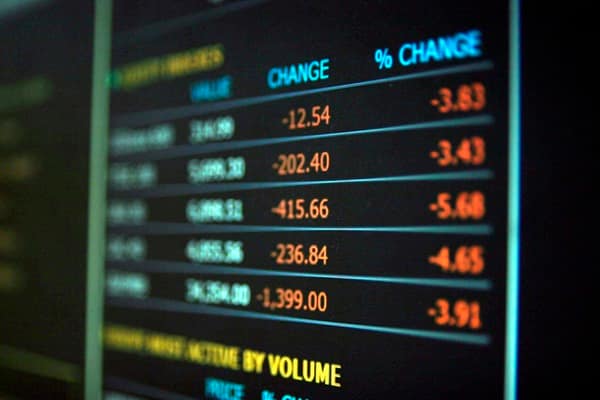U.S. stock markets recorded another week of losses, with all major indices — including the S&P 500, Nasdaq Composite, and Dow Jones Industrial Average — remaining in negative territory for the year.
Investor sentiment was heavily influenced by ongoing concerns over trade policies as the Trump administration introduced new tariffs.
Additionally, recession fears were reinforced by President Trump’s comments regarding an economic “transition period.”
Economic data released during the week indicated some easing in inflation.
The Consumer Price Index (CPI) report showed a 0.2% monthly increase for February, while the core CPI (excluding food and energy) recorded a 3.1% year-over-year rise — the lowest annual increase since April 2021.
Similarly, the Producer Price Index (PPI) remained flat from January, with core prices even declining.
Despite these encouraging numbers, inflation remains above the Federal Reserve’s 2% target, and policymakers are expected to maintain interest rates at their upcoming meeting on March 18–19.
Consumer confidence, however, declined sharply, with the University of Michigan’s Consumer Sentiment Index dropping 11% in March to 57.9 — marking the third consecutive monthly decline.
The report cited concerns across multiple economic sectors, including inflation, labor markets, and business conditions. Meanwhile, U.S. Treasury yields fell as investors sought safe-haven assets, leading to positive returns in the bond market. High-yield bonds, however, saw mixed performance, with lower-rated securities under pressure due to tariff concerns.
The pan-European STOXX Europe 600 Index declined by 1.23% as investors weighed the potential economic impact of U.S. trade tariffs. While France’s CAC 40 lost 1.14% and the UK’s FTSE 100 fell 0.55%, Germany’s DAX and Italy’s FTSE MIB managed modest gains, supported by optimism over increased state borrowing in Germany.
The European Central Bank (ECB) remains cautious regarding future interest rate cuts. ECB President Christine Lagarde expressed concerns about “exceptionally high uncertainty,” which could challenge the central bank’s ability to achieve its 2% inflation target. Other ECB policymakers echoed similar sentiments, citing geopolitical risks and potential increases in defense spending as factors that could keep inflation elevated. Despite these warnings, some members, such as Bank of Portugal Governor Mário Centeno, argue for further rate cuts to stimulate growth.
In the UK, economic data revealed a 0.1% contraction in GDP for January after a 0.4% expansion in December. Despite this setback, the rolling quarterly growth rate of 0.2% was slightly better than the previous month’s 0.1%. Meanwhile, Germany’s incoming coalition government finalized an agreement to increase state borrowing significantly, with plans to establish a EUR 500 billion infrastructure fund to boost spending on defense and public projects.
Japan’s stock markets showed modest gains for the week, with the Nikkei 225 rising by 0.45% and the TOPIX Index increasing by 0.27%. A weakening yen provided a boost to Japanese exporters, though uncertainties over U.S. trade policies, particularly proposed auto tariffs, dampened market enthusiasm. A major development in Japan’s labor market was the conclusion of the spring “shunto” wage negotiations, which secured the largest pay increase in over 30 years. The outcome could influence the Bank of Japan’s next interest rate decision as policymakers assess the impact of wage growth on inflation and economic momentum.
In China, stock markets experienced gains amid growing expectations for government stimulus. The CSI 300 Index rose 1.59%, and the Shanghai Composite Index gained 1.39% after Beijing announced a press conference focusing on boosting domestic consumption. Policymakers have prioritized consumer spending as a key driver of economic growth, with China setting an ambitious 5% growth target for 2025. However, inflation data indicated weak demand, as the consumer price index (CPI) fell 0.7% year-over-year in February, marking the first contraction since January 2024. Persistent deflation risks have prompted Beijing to implement fiscal and monetary measures to spur consumption, though concerns over the prolonged housing downturn continue to weigh on consumer confidence.
Overall, global markets remain influenced by monetary policy decisions, geopolitical risks, and trade uncertainties. Investors are closely monitoring economic data and policy developments to gauge the trajectory of inflation, interest rates, and economic growth in the coming months.
As global markets navigate shifting economic conditions, policy decisions, and trade uncertainties, investors remain focused on inflation trends, interest rate movements, and geopolitical developments that will shape the financial landscape in the months ahead.





Leave a Comment